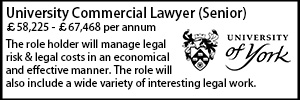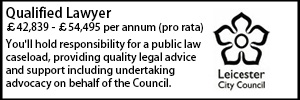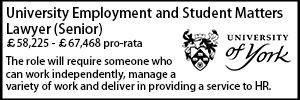Senior judge hails “as beacon of good practice” Court of Protection case concerning permanent relocation from England and Wales
- Details
The Vice President of the Court of Protection has hailed a case of whether it was in the best interests of a 68-year-old woman to return to Poland as “a beacon of good practice” and a paradigm for professionals who find themselves considering similar situations in the future.
In UR, Re (Rev 1) [2021] EWCOP 10 Mr Justice Hayden was concerned in the application with UR, who was born in Poland in February 1952. She moved to the UK at the age of 20.
The judge said UR had had a rich and interesting life, but that has been lived, for some time now, in the shadow of a persistent delusional disorder and what was described as a comorbid depression.
One aspect of UR's general psychological presentation was a somatoform pain disorder which meant that sometimes UR believed she had serious pain in her limbs for which there was no actual pathology.
“Sometimes, in consequence of this condition, she refuses to eat and drink. There have been periods where she has declined to make any effort to walk, believing her legs require amputation. It is often necessary, to maintain her general health, for nutrition, hydration and medication to be provided by way of a PEG tube,” the Vice President said, adding that this was the issue that first led to the case coming before him.
Over the course of the last nine months UR has been receiving care in a nursing home. Her placement there was jointly commissioned by the local authority and the clinical commissioning group.
UR is currently eligible to receive after care services pursuant to section 117 of the Mental Health Act 1983 ('MHA 1983') in consequence of her earlier treatment under section 3 of that Act.
Final declarations were made by the court in relation to medical issues on 23 July 2020.
The case came before Mr Justice Hayden again, however, in relation to questions concerning where UR should live and, specifically as to whether UR should remain in her care home or return to live with and be cared for by her family in Poland.
The application proceeded as a challenge to the standard authorisation granted by the local authority pursuant to section 21A of the MCA 2005 as regards the best interests qualifying requirement, and specifically, whether that qualifying requirement was met.
Mr Justice Hayden said: “As I understand it, UR has, for most of the past 9 months, been consistently expressing a wish to return to Poland and to her family. The unwavering consistency of those wishes are striking and unambiguous.
“At a hearing in November 2020, the real issue identified by the Court and the parties became whether it was possible and in UR's best interests to achieve that which she plainly wanted. UR has a family who are important to her. Perhaps most important is her sister, G. She is just a few years younger than UR. G and UR's niece, E, have both repeatedly and enthusiastically offered to care for UR. They live in Silesia in South West Poland and they have accommodation which would be suitable for her. UR has the financial wherewithal to fund her own package of care, should that be required.”
Mr Justice Hayden said it was manifest that UR had received consistent and good quality care in the care home.
The judge did, however, find that he was satisfied that it was possible and in UR’s best interests to move to live in Poland.
He also concluded that the move from the care home to her family in Poland was not only incorporated within the identified by the Health Protection (Coronavirus, Restrictions) (All Tiers) (England) Regulations 2020/137, but reflected both the spirit and objectives of the Regulations as a whole. He found that UR’s carers had a “reasonable excuse” to accompany her and were therefore validly ‘exempt’ from the regulations.
The Vice President said: “Although there are a number of outstanding practical matters, as I have highlighted above, I have very little hesitation in reaching the conclusion that, whilst the plan is not free from risk, it offers distinct and obvious advantages to UR. It broadens UR's social horizons, it returns her to her family, it relocates her to her homeland.
“Perhaps most importantly, as it is consistent with her clear and frequently expressed wishes, it guards her autonomy in the proactive way the MCA prescribes. It is not possible here, or in life generally to eradicate all risk. Perhaps a life without risk is not even desirable. Exercising personal autonomy frequently requires making choices. I am quite sure that UR would be safe and well cared for in her care home. I am equally sure that she would not be happy.
“It strikes me that were she fully capacitous to take this decision herself UR would recognise the inevitable discomforts and challenges of what may very well be her last journey but would unhesitatingly choose to return to Poland. I am pleased that all the professionals in this case, working collaboratively and creatively together, have been able to construct a plan for UR's return which I am able to approve as being in her best interests.”
Mr Justice Hayden said he had delivered a judgment in this case which was lengthier and more detailed than he had originally contemplated. “I have done so because I consider the preparation and presentation of this case, by all the disciplines involved, is a beacon of good practice. It should be regarded as a paradigm for professionals who find themselves considering similar situations in the future.”
The judge said he considered that the case management measures taken here were likely to be of wider and more general assistance in cases, in the Court of Protection, involving permanent relocation from the jurisdiction of England and Wales. He agreed with counsel that a non exhaustive checklist [contained in the judgment] was likely to provide useful guidance.



















































